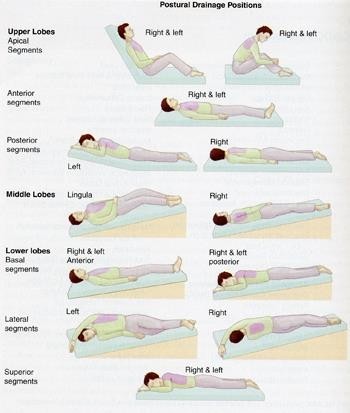A nurse is preparing to discharge a client who has a halo device and is reviewing new prescriptions from the provider. The nurse should clarify which of the following prescriptions with the provider?
May operate a motor vehicle when no longer taking analgesics.
May place a small pillow under the head when sleeping.
Increase intake of fiber-rich foods.
Take tub baths instead of showers.
The Correct Answer is A
A halo device is a type of external fixation device that immobilizes the cervical spine after an injury or surgery. The device consists of a metal ring attached to four metal rods that are secured to a vest worn by the client. The device limits the movement of the head and neck, which can impair the client's ability to drive safely. The nurse should clarify with the provider if the client can operate a motor vehicle while wearing the halo device, as this may pose a risk for injury to the client and others on the road.
Placing a small pillow under the head when sleeping, increasing intake of fiber-rich foods, and taking tub baths instead of showers are all appropriate instructions for a client with a halo device
Nursing Test Bank
Naxlex Comprehensive Predictor Exams
Related Questions
Correct Answer is B
Explanation
A complete AV block (also called third-degree AV block) is a type of heart block in which there is no electrical communication between the atria and ventricles. This means that the atria and ventricles beat independently of each other, resulting in a slow and irregular pulse. A complete AV block can cause symptoms such as dizziness, fainting, chest pain, shortness of breath, and heart failure.
A permanent pacemaker is a device that sends electrical impulses to the heart to regulate its rhythm and prevent bradycardia (slow heart rate). A permanent pacemaker is indicated for clients with complete AV block and rates slower than 40/min or symptomatic bradycardia.
The other options are not indications for a permanent pacemaker. Vasovagal bradycardia is a temporary drop in heart rate and blood pressure caused by a stimulus that triggers the vagus nerve, such as pain, stress, or straining.
It usually resolves on its own or with simple measures, such as lying down or elevating the legs. Sinus tachycardia is a normal increase in heart rate in response to physical or emotional stress, such as exercise, fever, or anxiety. It usually does not require treatment unless it is caused by an underlying condition or causes symptoms.
Asymptomatic second-degree AV block is a type of heart block in which some of the electrical impulses from the atria are blocked from reaching the ventricles. It may not cause any symptoms or affect the overall heart rate. It may be benign or transient, or it may progress to a more serious type of heart block. It may require monitoring or medication, but not a permanent pacemaker unless it causes symptomatic bradycardia.
Correct Answer is B
Explanation
A chest physiotherapy vest is a device that delivers high-frequency chest wall oscillation to loosen and mobilize mucus from the airways . This helps improve lung function and prevent respiratory infections in patients with cystic fibrosis, who have thick and sticky mucus production . A peak flow meter is used to measure the peak expiratory flow rate, which reflects the degree of airway obstruction in patients with asthma .
An NG tube with suction apparatus is used to decompress the stomach and remove gastric contents in patients with bowel obstruction, paralytic ileus, or gastroparesis . A chest tube with a drainage system is used to remove air or fluid from the pleural space in patients with pneumothorax, hemothorax, or pleural effusion .

Whether you are a student looking to ace your exams or a practicing nurse seeking to enhance your expertise , our nursing education contents will empower you with the confidence and competence to make a difference in the lives of patients and become a respected leader in the healthcare field.
Visit Naxlex, invest in your future and unlock endless possibilities with our unparalleled nursing education contents today
Report Wrong Answer on the Current Question
Do you disagree with the answer? If yes, what is your expected answer? Explain.
Kindly be descriptive with the issue you are facing.
